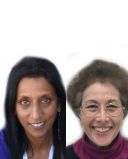Personality
Inner Space
Ways in which you can gain self-discovery. Are you willing to try them?
Posted July 2, 2018
Do you think you really know who you are? If asked to describe yourself, would you be able to answer without having to spend a lot of time thinking about it? Would you be able to give specific information, or would you respond with generalizations? How much could you say about yourself and how many different characteristics or features could you list? Finally, how accurate and honest would you be?
The truth is, the extent of people’s knowledge about themselves differs:
- Some people avoid introspection for fear of uncovering negative information
- Some people have no interest in gaining self-awareness
- Some people are characteristically inquisitive
- Some people limit their curiosity about themselves to certain areas (e.g., “What is there about me in my social interactions?”)
- Some people are oriented toward growth and having a need “to know” who they are
Much of the research in this area has found that people explore their self-concept in relation to how they can use the information to achieve social goals (e.g., “How do I relate to others and how can I improve my interactions?”). This approach contrasts with those who are curious about themselves for the sheer desire to gain knowledge about oneself (e.g., “Who am I?”).
Getting to know yourself because you want to improve your interpersonal relations or because you are on a journey to gain self-awareness are not the only ways to obtain self-knowledge. Another means is when we find ourselves in unfamiliar situations that “test” us. That is, the circumstances are such that we are forced to respond, and how we respond can be very telling.
All of us have encountered events that deviate from our general experience. These might be natural disasters, the death of a spouse, the birth of a first child, moving away from home, fighting in military combat, being lost in a potentially dangerous setting, etc. How we conceptualize our situation and respond emotionally and behaviorally tells us something about ourselves. By examining our response, we may discover features about us we never knew we had. These may include deep characterological aspects; such as, inner strength and unknown weaknesses. We may also become aware of less “weighty natures;” such as, interests and preferences. Until we are tested, we may not actually know our true self.
Bonnie left home to go to college 1,500 miles away from her family. She has always been reserved and dependent on her parents. She thought that going to a new place where she knew no one and would be on her own would force her to become more outgoing and self-sufficient. She knew she was placing herself in “unfamiliar territory,” but she wanted to know if she could handle the challenge.
Calvin always thought of himself as an “abstract” individual who was not very savvy about matters of everyday living. One evening, late at night, Calvin and his wife were asleep when he heard a loud noise inside their house. He feared that it might be a burglar and he didn’t know what to do other than to try and keep his wife and himself safe. He had to think quickly and remain as calm as possible, despite his terror and racing heartbeat. He managed to find a way for them to exit the house safely and then called the police.
Whether we choose to undergo a test or whether we are tested involuntarily, such situations present an opportunity to gain insight into who we are. By examining our response, we may discover features of ourselves we never knew we had. We might discover traits that can change our entire perception of ourselves. Self-discovery arises when we move out of our “comfort zone.”
Is it a good thing to gain self-awareness; especially, if there is a risk of finding out that we are not who we think we are? That depends on whether we want to grow by boosting our known and new-found strengths and minimizing the presence of our negative traits.
It is important to acknowledge that many people derive their self-knowledge based on feedback from others. We do not live in a universe of one where introspection is always accurate. When looking within ourselves, we may overestimate, underestimate, or not even see certain characteristics and features. Therefore, getting to actually know oneself is enhanced if we are willing to listen to what others have to say about us.
Research has found that people who know us well may have more accurate perceptions as opposed to those who don’t. However, if they are close to us, there is the risk that they may be more positively biased in their assessments. Therefore, it may be better to seek feedback from those who know us well but who can be objective.
Feedback is not always accepted because we may be defensive and want to preserve our self-perception. Yet, if the information given by others causes us to change out behavior to “prove them wrong” or gives us new information to consider at a later date when we may be more open to possible weaknesses, we have gained in our discovery of knowing ourselves, and possibly will become a better person.
Each of us can be an explorer who confirms known and discovers unknown aspects of our personality landscape. The choice to do so is ours.
References
Bollich, K. L., Johannet, P. M., & Vazrie, S. (2011). In search of our true selves: Feedback as a path to self-knowledge. Frontiers in Psychology, 2, 1-6. doi: 10.3389/fpsyg.2011.00312
Litman, J. A., Robinson, O. C., & Demetre, J. D. (2017). Intrapersonal curiosity: Inquisitiveness about the inner self. Self and Identity, 16, 231-250. DOI: 10.1080/15298868.2016.1255250




